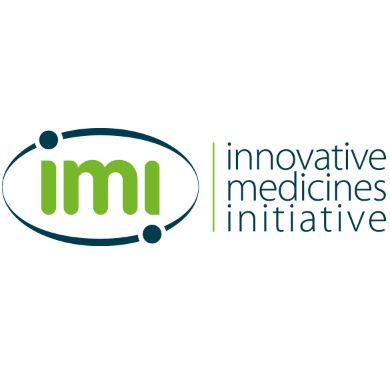
Supporting the development of engineered T cells
Date de clôture : 26 mars 2020
APPEL À PROJET CLÔTURÉ
APPEL À PROJET CLÔTURÉ
Entrepreneuriat et PME
Innovation
Soins de santé
Équipement médical
E-health
Biotechnologie médicale
Recherche
Société numérique
Santé mentale
Engineered T cells, including chimeric antigen receptor (CAR) and T-cell receptor (TCR) engineered T cells, combine features of cell therapy, gene therapy, and immunotherapy. With two distinct autologous CD19 CAR-T-cell therapies approved by Food and Drug Administration (FDA) in 2017 and European Medicines Agency (EMA) in 2018, cellular immunotherapy is emerging as a promising new treatment modality for a broad range of cancers. Allogeneic approaches are also being developed in order to overcome some of the challenges of autologous therapies. Although CAR-T-cell therapies have been largely successful in treating haematological malignancies, they have not been as effective in treating solid tumours.
These complex medicinal products have been associated with unique specific acute toxicities, with cytokine release syndrome (CRS) and neurotoxicity being two most commonly observed toxicities. Animal models often fail to predict toxicities associated with the use of CAR-T cells and frequently overestimate the efficacy of the treatment, as they do not accurately reflect the tumour microenvironment (TME). Although new mouse models have recently been shown to be able to recapitulate human efficacy, CRS and neurotoxicity of anti-CD19 CAR-T cells, efforts are still needed to optimise and extend these models to other tumour antigens. The use of alternative, non-genotoxic and non-myeloablative methods to induce lymphodepletion or better schemes for administrating existing regimens may also contribute to decreased toxicity associated with engineered T cells.
The need for good manufacturing practice (GMP)-compliant manufacturing may also constitute a specific hurdle in the timely translation to the clinic. Issues may be related to the consistency of clinical batches, the characterisation of the final product, and definition and evaluation of specific potency criteria. The standardisation of analytical procedures would improve comparability of CAR-T-cell batches and of clinical results from patients included in different trials and/or receiving CAR-T cells from different origins.
Scope:
The overall objective of the call topic is to support the development of autologous and allogeneic engineered T-cell therapies, including CAR and TCR engineered T cells. The Call topic addresses both haematological and solid tumours.
- Optimisation of existing pre-clinical models, tools and pharmacodynamic (PD) markers to predict toxicities associated with engineered T cells. Development of new models and tools if needed.
- Optimisation of existing pre-clinical models, tools and PD markers to predict the efficacy of engineered T cells.
- Comparison of existing analytical methods used pre- and post-infusion of engineered T cells to define gold standard methods. New technologies may also be developed.
- Creation of a database with historical existing clinical and biological data from patients receiving lymphodepleting regimens. Development of relevant in vivo models to evaluate new lymphodepleting regimens.
- Expert discussion on the implementation of regulatory guidance for engineered T cells.
- Development of communication tools for patients and healthcare providers on engineered T cells.
- Expert discussion on the best path to ensure broad patient access to engineered T cells.
Expected Impact:
At the levels of the R&D process, regulatory pathways and/or health technology assessment (HTA), patient access processes, clinical and healthcare practices, the impact would be:
- the development of safer and more effective engineered T-cell therapies;
- the opportunity to compare data generated from standardised analytical methods;
- increased industrial competitiveness;
- broader patient access to engineered T-cell therapies;
- an increased awareness among HCPs of patients’ concerns.
In addition, patients will benefit from the project outputs by:
- better understanding the mode of action and procedures of their treatment;
- having a better consideration of their perspectives by being a key actor of the whole R&D process;
- acilitated interactions with HCPs.
For society, the impact could be:
- a better understanding of these complex therapies by the public (complexity, efficacy and safety);
- a better understanding and evidence-based development of engineered T cells might also contribute to decreasing their cost;
- improved synergies between industry, small and medium-sized enterprises (SMEs) and academic organisations.
Deadline: 26 September 2019 17:00:00 Brussels time
2nd stage Deadline: 26 March 2020 17:00:00 Brussels time
Lien officiel : Disponible pour les utilisateurs enregistrés




S'il vous plaît Se connecter pour voir cette section